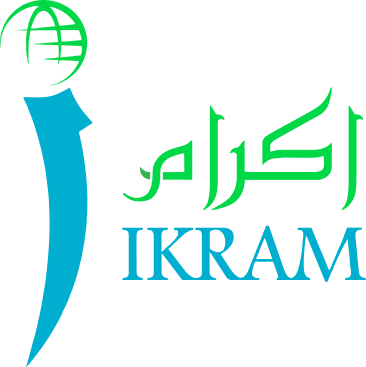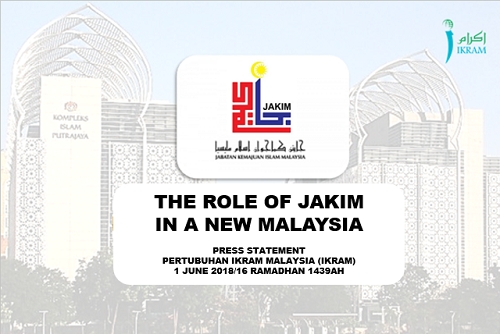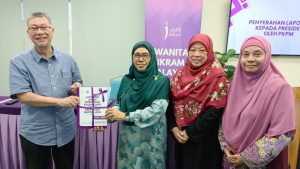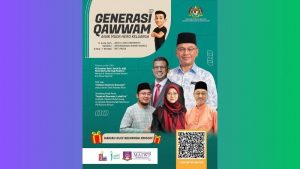Pertubuhan IKRAM Malaysia (IKRAM) applauds the statement issued by the YAB Prime Minister, Tun Dr. Mahathir, on reviewing the role of the Department of Islamic Development Malaysia (JAKIM).
On the 24th of May 2018, the IKRAM Committee of Ulama held a Roundtable Discussion among Islamic Scholars to discuss matters pertaining to the administration of Islam in Malaysia.
In the best interests of today’s ummah (Muslim community), IKRAM wishes to propose the following resolutions for the consideration of the government:
1. The Pakatan Harapan government (PH) must carry out the administration of Islam in Malaysia in accordance with the Quran and authentic ahadith (Prophetic traditions), as mentioned by the YAB Prime Minister in his recent Ramadhan message:
“The recent general elections will bring about change in the running of the country and the administration of Islam. The Pakatan Harapan government will place emphasis on the teachings of Islam as found in the Quran and authentic ahadith.”
This concept of adherence to sound Islamic principles needs to be explained thoroughly, empowered, popularised, and executed by all Islamic institutions, administrative agencies, and enforcement agencies at both federal and state levels.
2. The Islamic approach of wasatiyyah (moderation) that unites the Muslim ummah needs to be incorporated and prioritised in all policies and in execution. A wasati approach entails a middle-ground, non-extreme understanding of Islam which is neither overly conservative and static nor astray from sound disciplines of Islamic knowledge. Exercising ijtihad (interpretation of legal sources) should be central to the management of current affairs, taking into account opinions from the Shafie mazhab (school of thought) and other mazahib as well as individual opinions from notable scholars.
3. Fostering Muslim unity on the basis of the Quran and authentic ahadith should also be made a priority. Disputes grounded in differences among mazahib, such as those between the Salafi and Asy’ari streams of aqidah (creed), need to be addressed and resolved. Other divisive disagreements, pertaining to minor issues of fiqh (jurisprudence), should be curbed.
However, diversity in views cannot be avoided entirely. As such, these differences should be respected. Discourse and discussion among experts in academic and civil settings should be encouraged.
4. Harmony between Muslims and non-Muslims should be made a national agenda. An understanding of fiqh al-muwatonah (discourse on citizenship) in the context of contemporary Malaysia needs to be featured in the manifestation of Islam as a religion of rahmah (mercy, compassion, benevolence). The mindless labelling of non-Muslims with contrasting views in certain matters as “kafir harbi (those on whom war can be waged)” and “enemies of Islam” must cease. Islamic institutions and agencies under the Prime Minister’s Department should play a serious role towards achieving this objective.
5. Extreme Islamic doctrines, whether disseminated throughout society or practised in Islamic institutions and agencies, must be eradicated. A stop must be put to practices such as takfir (accusation of heresy), fanaticism towards individuals and groups, and labelling.
The appointment of officials with extremist leanings and the presence of unhealthy propaganda among certain religious agencies should be checked. The roles of such agencies may be revised so that they function as entities that internally eliminate or rectify such ideologies.
6. Dakwah (conveyance of Islamic teachings) to Muslims and non-Muslims alike must be spurred with human and financial resource empowerment, employing both mainstream and social media and also face-to-face methods. Dakwah approaches integrating wisdom, advice, sound arguments, academic discourse, and good conduct should be allowed to flourish.
7. Scholars who are authorities in their respective fields should be impartially highlighted by the mass media in order to promote a culture of knowledge in society.
8. Institutions and agencies related to Islamic affairs under the Prime Minister’s Department, such as JAKIM, should be maintained and their administration improved. However, the roles, structures and operational systems of these departments, and the function of individuals heading them require revision so as to avoid redundancy and to enhance efficiency.
9. The appointment of any individual to a post must be based on qualification and expertise, in line with the aspirations of and direction set by the government.
10. All parties based within civil society and/or the government should refrain from raising sensitive religious issues that may cause strife or disunity, or bring about negative perceptions. However, such issues may be discussed by qualified individuals through academic platforms and discourses.
11. The Shariah Court needs to be empowered and its jurisdiction reinforced. This process must commence immediately.
12. In Buku Harapan, a paragraph in the 11th manifesto states:
“The power of the Malay Sultans in the administration of religion and the customs of the Malay people will be returned to their respective states, and federal intervention in such matters will cease.”
This paragraph needs to be well-elaborated so as to not cause misconceptions regarding the role and responsibility of the federal government in upholding Islam as the Religion of the Federation. A committee may be assembled to identify such “federal intervention” and to advise on its resolution.
13. An article of the Malaysian Constitution which states that “Islam is the Religion of the Federation” needs to be upheld and its spirit observed in every ministry, institution, and in the lives of the Malaysian people as a whole.
Ustaz Haji Burhanuddin bin Lukman
Vice President of IKRAM / Chairman of the Committee of Ulama
Pertubuhan IKRAM Malaysia








